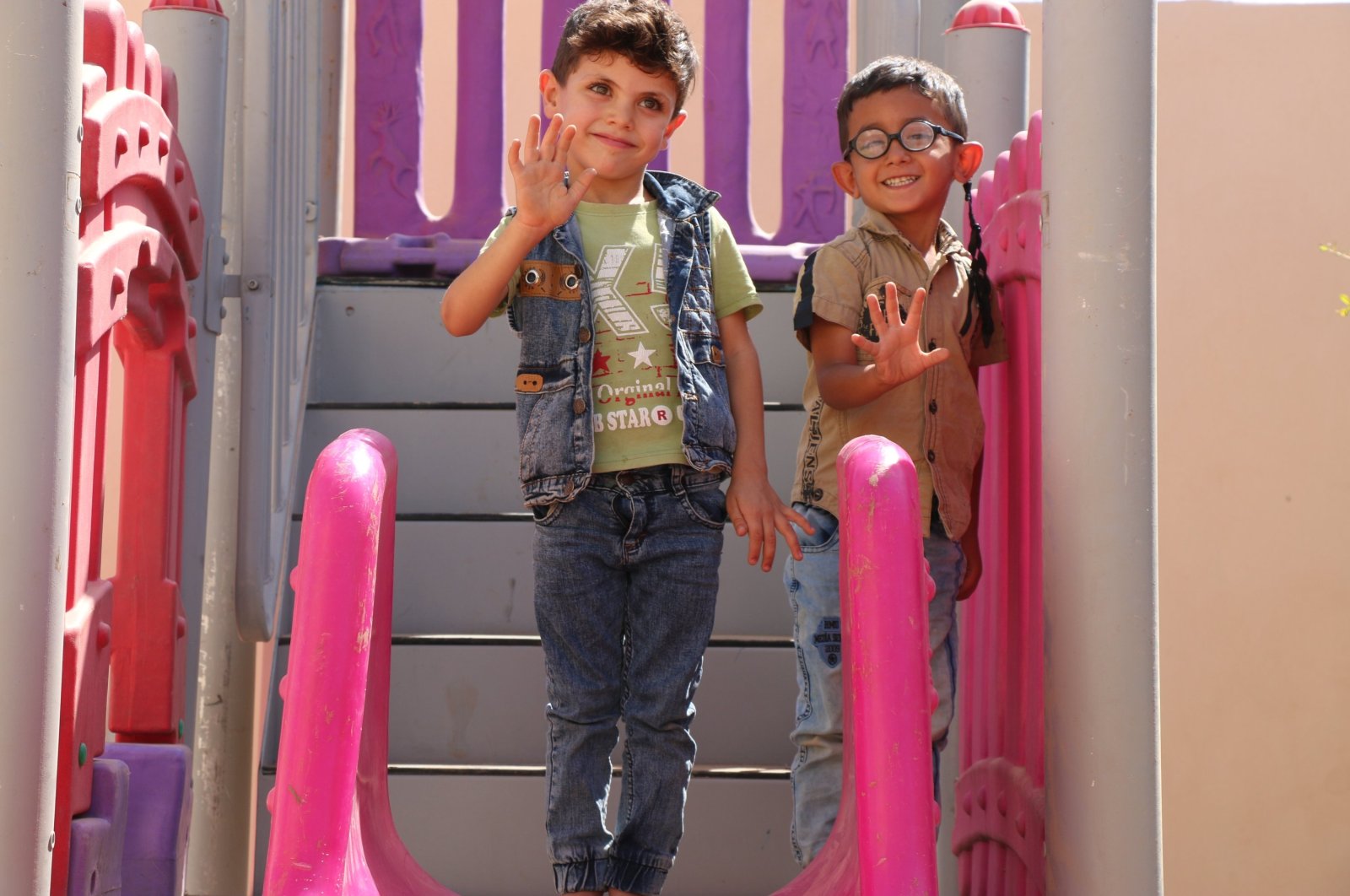
Five years after a Turkish operation that rid the region of terrorist groups, northern Syrians are enjoying improved infrastructure, jobs and security
Syrians in northern regions liberated by Türkiye's Operation Peace Spring enjoy major improvements in infrastructure, development, security, education and health five years after the PKK terrorist group, its Syrian branch YPG and Daesh were driven out.
Ankara launched Operation Peace Spring on Oct. 9, 2019, under its right to self-defense as stipulated in Article 51 of the U.N. Charter to target terrorist groups, particularly the PKK/YPG, which threatened the national security in northern Syria.
Within four days, Turkish forces cleared the town of Ras al-Ain and a day later, Tal Abyad was liberated from PKK/YPG terrorists. Overall, the operation secured more than 4,000 square kilometers and approximately 600 settlements from terrorist control.
Ankara reached separate agreements with both the U.S. and Russia during the operation, who both promised to remove PKK/YPG forces from a 30-kilometer zone south of Türkiye's border. However, five years later, neither the U.S. nor Russia are yet to adhere to these commitments.
Return of the displaced
After the operation, Türkiye's armed forces and the Syrian National Army focused on maintaining security and enabling displaced civilians to return home. Since the establishment of local councils, which also provide job opportunities, the region has seen significant infrastructure improvements, including the resolution of water and power shortages.
According to Tal Abyad customs authorities, 54,445 civilians have returned to their homes since the operation's inception, including 35,000 before October 2023. More than 254,500 people now reside in the area and nearly 3,000 people are employed in various local council-related offices in both Tal Abyad and Ras al-Ain.
'Safer now'
Tal Abyad Local Council President Salih Hac Abdullah congratulated the people on the fifth anniversary of the town’s liberation, emphasizing the success of the region’s development.
"Living conditions are much better now," he told Anadolu Agency (AA), pointing out the reopening of repaired and improved water networks, roads, bakeries, hospitals and schools.
PKK/YPG occupation left behind heavily damaged public buildings and infrastructure in Tal Abyad and Ras al-Ain. Local councils have since established offices to restore these facilities, with local resources supporting the reconstruction.
A new industrial site in Tal Abyad, which includes a brick factory, oil refinery, cement factory and stone quarry, now supplies materials for landscaping, road repairs and urban improvement projects in the region. Recent developments include paving secondary streets with interlocking stones in Tal Abyad, with plans to expand these efforts to other neighborhoods.
"Things are going so much better since we have been saved from terrorist groups' attacks that killed innocent civilians every day," Abdullah said.
Indeed, 46,000 primary, secondary and high school students started classes in 474 schools that Türkiye prepared for education this year. The curriculum in these schools follows the guidelines set by the Syrian Interim Government.
Additionally, the Free Aleppo University, affiliated with the Syrian Interim Government's Ministry of Education, continues to offer education in Tal Abyad across 10 departments since opening in 2023.
Reconstruction
Ali al-Abid, a resident who returned to Tal Abyad after its liberation, expressed satisfaction with the improved services and living conditions in the town, saying, "Things are getting better. The security situation is excellent. We are free from the brutal attacks of armed terrorist groups."
He added, "Reconstruction efforts are thriving in the region and the local council has initiated numerous projects to assist low-income families."
Al-Abid, who was shopping for clothes for his children, highlighted the affordability of goods in the local market, stating: "The most expensive item in the store is TL 180. Prices are very reasonable and the quality is good."
He said: "Many job opportunities have been created, and thankfully, the situation is very good. Life is much better now than it was under the terrorist group's control when there were no services. Today, we have electricity, services and internet – the region's situation is genuinely excellent."
Ali al-Fares, who had been displaced for 10 years due to the war and the PKK/YPG, returned to Tel Abyad with his family after the operation.
"We reopened our shops and reunited with our families," Fares said. "Stability and security are better than before. The services we have now didn’t even exist during the regime's time."
